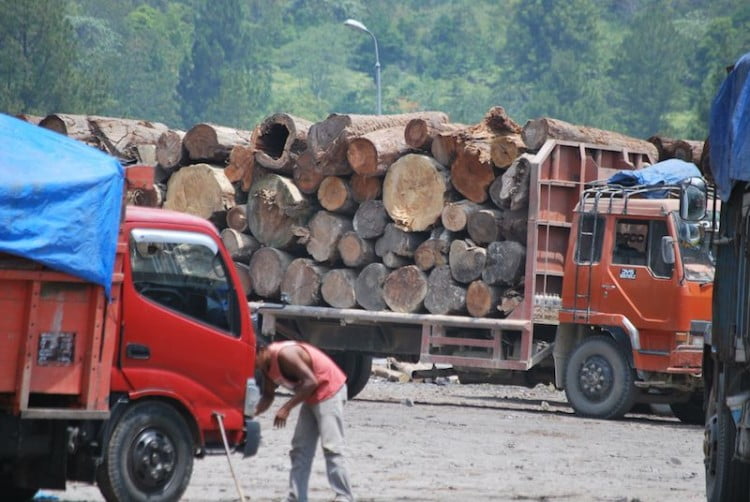Indonesian Pulp And Paper Giant APRIL's Forest Policy Too Weak
Published:
Author:
Nicole Rycroft
Type:
Blog article
Published:
Author: Nicole Rycroft
- Type: Blog article
 In January 2014, Asia Pacific Resources International Limited (APRIL), Indonesia’s second largest pulp and paper producer and the largest driver of deforestation in the sector, released an updated Sustainable Forest Management Policy. The announcement seems to have been made in direct response to international pressure but unfortunately does nothing to really end deforestation and business as usual. Well, not until end of 2019 at least. That leaves a lot of time for Indonesia’s carbon rich forests to be logged, peat lands drained and critical habitat lost.
In January 2014, Asia Pacific Resources International Limited (APRIL), Indonesia’s second largest pulp and paper producer and the largest driver of deforestation in the sector, released an updated Sustainable Forest Management Policy. The announcement seems to have been made in direct response to international pressure but unfortunately does nothing to really end deforestation and business as usual. Well, not until end of 2019 at least. That leaves a lot of time for Indonesia’s carbon rich forests to be logged, peat lands drained and critical habitat lost.In fact, that’s exactly what APRIL is doing right now. They are currently logging, and have plans over the next five years to continue cutting many of Indonesia’s most important remaining natural rainforests all in an effort to feed their mills. A recent article, Paper One’s environmental pledge sparks race to clear Sumatran Forest, points out that by establishing a policy with far off deadlines, APRIL has created a perverse motivation to move quickly to cut natural forests in its concessions.
As the article illustrates, forests on Padang Island off the coast of North Sumatra have been the subject of community conflict in the past with some community members going so far as to sew their mouths closed in protest at their voices being silenced. Yet despite this clear and desperate opposition, the company is now proceeding to rapidly clear these carbon-rich peat forests, insisting they are not violating their own policy.
Company ignores opposition, continues legacy of deforestation
APRIL’s plan falls short of stopping it from leaving a legacy of deforestation and habitat destruction in several areas:1) The company will still be pulping rainforests in their concessions until the end of 2019,
2) APRIL will continue to buy from third party fibre suppliers sourcing from rainforests until the end of 2019,
3) The commitments to address degraded lands caused by APRIL’s operations represents an area equal to only 5% of its concession area ,
4) The plan does not address ongoing land grabs and social conflicts caused by APRIL’s operations, and
5) APRIL is only one part of the Royal Golden Eagle Group (RGE) so if the company is to truly reduce its impacts, a comprehensive plan must include all aspects of RGE’s operations including other mills that are sourcing fibre from and operating in Indonesia.
APRIL’s history reveals it has faced allegations of unsustainable and socially egregious practices for years. APRIL/RGE are now prohibited from carrying FSC certification following a complaint filed regarding non-compliance with FSC standards. The World Business Council for Sustainable Development (WBCSD) has suspended APRIL from its Forest Solutions Group. Its membership in WBCSD is on probation and the company has been given 12 months to show proof that it is changing its policies on deforestation or face expulsion. Many view the WBCSD suspension as the catalyst for APRIL issuing its updated forest policy; a plan that will only lead to the company’s history repeating itself.
Change is desperately needed and APRIL’s promise to begin implementing changes in six years or so is not reassuring. As the referenced article notes, “Campaigners fear that, by 2020, too much of the Sumatran forest, with its endangered orangutans, tigers, rhinoceros and elephants, will be gone.”
APRIL is continuing to operate as it always has with little to no forests in its concessions nor the communities who rely on them being protected.
Learn more about Indonesia’s rainforests and Canopy’s campaign to conserve them .









